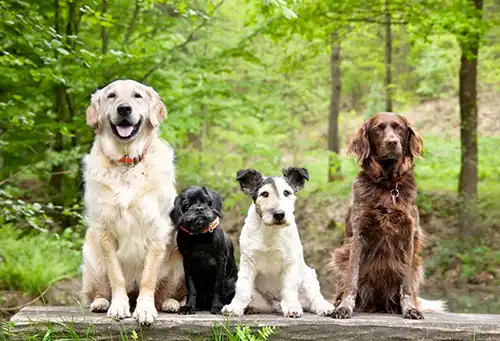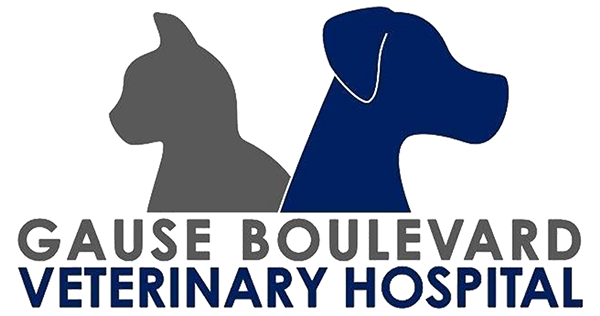Is it really Thanksgiving already? It’s hard to realize 2025 is coming to an end. Pets are surely at the top of the list of things for which we are grateful. They offer us unconditional love, unshakable support, and dedication, as well as comfort, friendship, and endless cuddling. They also make us chuckle with their endearing personalities and funny behaviors. However, pet owners should be aware of a few issues associated to Thanksgiving. A Gunnison County veterinarian offers some Thanksgiving pet safety tips. Read on.
What Kinds of Meat Can Pets Eat?
Give your pet some of the wonderful turkey! Meat, fish, and poultry are generally safe as long as they are thoroughly cooked. There are a few caveats, though.
- Organ meats, such as liver, should be offered sparingly: too much might cause Vitamin A toxicity.
- Fatty foods, such as bacon and sausage, should be offered only on special occasions.
- You should also avoid offering pets foods with fatty toppings like cheese and butter.
- Things seasoned with garlic, onion, or other dangerous ingredients are also prohibited.
- Never feed your pet meat on the bone. When heated, bones become extremely sensitive and can break into sharp shards. These are choking hazards that can cause major internal damage if eaten.
Contact your Gunnison County veterinarian for more information.
Which Fruits and Vegetables Are Safe For My Pet?
Fido and Fluffy can consume a range of fruits and vegetables. In fact, these foods are as nutritious for dogs and cats as they are for humans!
- Apple
- Apricots
- Asparagus
- Bananas
- Beets
- Bell Pepper Blackberry
- Blueberries
- Broccoli
- Brussels sprouts
- Cabbage
- Cantaloupe Carrots
- Cauliflower
- Celery Corn
- Cucumber
- Green beans
- Cranberries
- Kale
- Lettuce
- Mango with Peaches
- Pears
- Peas
- Pineapple Oranges
- Pumpkin
- Raspberry
- Spinach Squash
- Sweet potatoes
- Watermelon
- Zucchini
Remove all seeds, pips, and rinds. You should also consider the size of the goods, as they may need to be sliced before delivery.
Certain foods, such as broccoli and cauliflower, should only be served on occasion. For detailed advice, consult your Gunnison County veterinarian.
What Foods are Not Safe for Pets?
Many things that are good for us are unhealthy for our pets. Here are a few things you should never feed your pet:
- Xylitol: Xylitol, sometimes known as birch sugar, is a sugar substitute that is highly toxic to dogs. Unfortunately, it is added to a wide range of processed meals, particularly baked goods. It is also occasionally mixed with peanut butter, which is normally safe for your pet to eat.
- Onions and Garlic: The entire Allium family is harmful to pets. This category comprises scallions, shallots, leeks, chives, garlic, and onion. The concern is that these foods contain organosulphoxides, which kill red blood cells and can result in anemia.
- Grapes, Currants, And Raisins: These small fruits are highly hazardous to dogs. Even just one grape can cause renal failure in some pets! Although further investigation is required, researchers have identified the cause: tartaric acid.
- Cherries: Arsenic in cherry pits is the concern here. Many cherries are also marinated in sweet sauces, which contain more sugar than our pets should eat. Avoid cherries completely.
- Nuts: Many nuts, particularly macadamia nuts, can make your pet very sick. Consumption may cause weakness, tremors, vomiting, sadness, or hypothermia.
- Corn On The Cob: Corn kernels are fine, however the cob is not safe for pets to consume. Consuming this can result in significant, potentially fatal intestinal obstructions.
- Chocolate: Chocolate contains theobromine, which is toxic to pets. It can cause vomiting, irregular heartbeat, and seizures. Unfortunately, even one ounce per pound of your pet’s body weight might be lethal.
- Raw Dough/Yeast: Toxicity isn’t the issue on this one. The problem is that raw dough or yeast can expand inside your pet’s digestive tract, which can cause all sorts of problems.
Alcohol, of course, is on the list. There are also some foods that, while not as dangerous as the ones listed here, are still hazardous. Many casseroles, for example, have high levels of fat, cream, and cheese, which are harmful to pets. Anything high in salt, sugar, or fat is also unsafe.
Dogs are slightly more vulnerable since they will eat almost anything, whereas cats are more selective. (Actually, Fluffy is extremely picky, but that’s another story.) However, some cats will consume whatever they can get their hands on.
As a general guideline, do not give your pet anything until you have thoroughly researched its safety.
Ask your vet for more information.
Schedule An Appointment With Our Gunnison County Animal Hospital
Happy Thanksgiving, everyone! We wish you and your families a wonderful day. We are extremely appreciative to all of you. Please don’t hesitate to contact us if you have any questions about your pet’s care. As your Gunnison County animal clinic, we are always available to assist!






!Social Media Icons